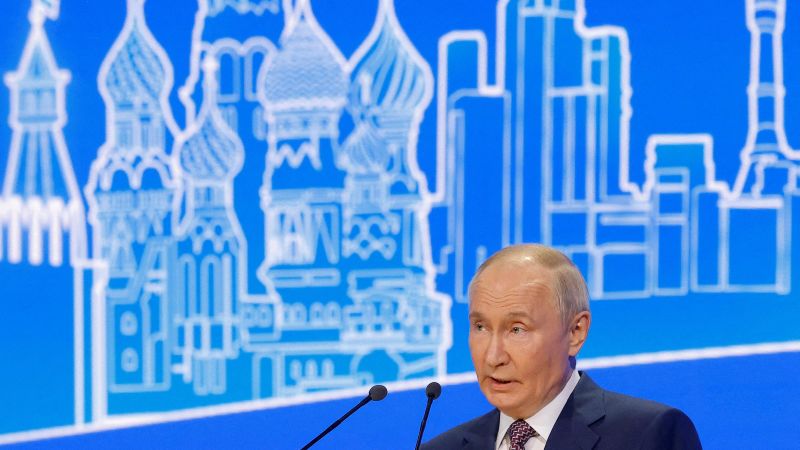Recent assessments from U.S. and Western intelligence indicate a significant shift in Russian President Vladimir Putin’s strategy regarding the ongoing conflict in Ukraine. This evolving intelligence suggests that Putin is now focusing on short-term objectives aimed at consolidating control over recently acquired territories and stabilizing Russia’s troubled economy. This analysis, reported by multiple sources familiar with the situation, highlights a departure from previous beliefs that Putin had the upper hand in the war, which had encouraged him to maintain a longer military engagement in hopes of seizing Kiev and establishing dominance over Ukraine.
This fresh perspective aligns with the views of President Donald Trump and his negotiating team, who perceive Putin as possibly being more amenable to exploring peace talks than in prior instances. However, many senior U.S. officials express skepticism regarding Putin’s intentions, noting that while he claims to seek a peace settlement, the terms being discussed remain disproportionately favorable to Russia, granting Moscow substantial territorial control. Furthermore, there is an overarching concern that even if an agreement is brokered, Russia may exploit it as a tactical pause, regrouping to pursue further territorial gains in Ukraine.
As a senior Western intelligence official noted, there may be a reframing of Putin’s objectives; instead of focusing on sweeping conquests, he may now be contemplating more achievable, realistic goals. U.S. initiatives, influenced by the turbulence of the Trump administration and the pressure of a faltering Russian economy, could be nudging Moscow to reassess its strategic focus. The discussions reportedly include the potential for historic investment collaborations between the United States and Russia post-conflict, further complicating the dynamics of any prospective peace agreement.
An official elaborated that seating at the negotiation table would require the U.S. to present terms that allow Putin to claim a domestic victory. This could be essential for him to agree to a halt in hostilities while ensuring he does not further aggravate the conflict in the future. Such negotiations have been linked to Putin’s long-term goals of extending Russian influence into areas he perceives as historically significant to Russia, notably regions within Ukraine.
Despite these negotiations, skepticism remains strong regarding Russia’s genuine willingness to pursue peace. Conversations indicate that the Kremlin might engage cooperatively with U.S. objectives to improve their international standing, all while harboring ambitions of reclaiming larger portions of Ukraine later on. Current assessments point to a confluence of military, economic, and political maneuvers that aim at securing Putin’s broader goals beyond mere territorial claims.
The scrutiny of the negotiations has intensified, especially amongst Western correspondents and officials. Concerns stem from the Kremlin’s past behavior, with many asserting that Putin’s efforts to initiate discussions may be disingenuous attempts to stall while continuing to pursue military objectives. This perception was reiterated by some U.S. senators who have emphasized the importance of treating Putin with caution, labeling him a deceptive figure whose ambitions could drag the U.S. into prolonged conflict if not approached correctly.
Amidst these complexities, the Trump administration has signaled readiness to acknowledge aspects of Russian sovereignty over certain territories seized in the conflict, particularly Crimea, further complicating Western support for Ukraine. Meanwhile, remarks from influential voices, including Vice President JD Vance, suggest a leaning towards a potential truce that would resonate around present front lines, hinting at possible territorial exchanges.
Several reports indicate that while the potential for an agreement may be on the horizon, there still exists substantial doubt about the authenticity of negotiations being undertaken by Putin’s regime. The constant fluctuations and reactions in diplomatic discussions underscore the intricate and layered challenges that define the geopolitical landscape, illustrating a stark reality where both sides of the dialogue are grappling with deeper strategic and historical motives that govern their actions in this enduring conflict.



